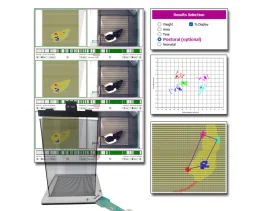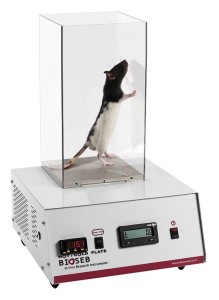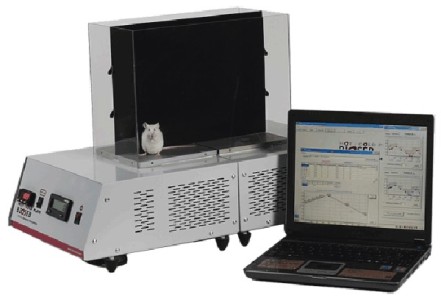Authors
J. Descoeur, V. Pereira, A. Pizzoccaro, A. Francois, B. Ling et al. (Team of Dr Bourinet)
Lab
Institut de Génomique Fonctionnelle, CNRS, UMR-5203, Département de Physiologie, Montpellier, France.
Journal
EMBO Molecular Medicine
Abstract
Cold hypersensitivity is the hallmark of oxaliplatin-induced neuropathy, which develops in nearly all patients under this chemotherapy. To date, pain management strategies have failed to alleviate these symptoms, hence development of adapted analgesics is needed. Here, we report that oxaliplatin exaggerates cold perception in mice as well as in patients. These symptoms are mediated by primary afferent sensory neurons expressing the thermoreceptor TRPM8. Mechanistically, oxaliplatin promotes over-excitability by drastically lowering the expression of distinct potassium channels (TREK1, TRAAK) and by increasing the expression of pro-excitatory channels such as the hyperpolarization-activated channels (HCNs). These findings are corroborated by the analysis of TREK1-TRAAK mice and use of the specific HCN inhibitor ivabradine, which abolishes the oxaliplatin-induced cold hypersensibility. These results suggest that oxaliplatin exacerbates cold perception by modulating the transcription of distinct ionic conductances that together shape sensory neuron responses to cold. The translational and clinical implication of these findings would be that ivabradine may represent a tailored treatment for oxaliplatin-induced neuropathy.
BIOSEB Instruments Used
Cold Hot Plate Test (BIO-CHP),Thermal Gradient Test (BIO-GRADIENT),Thermal Place Preference, 2 Temperatures Choice Nociception Test (BIO-T2CT),Jump Test (BIO-JTET)
Source :
http://onlinelibrary.wiley.com/doi/10.1002/emmm.201100134/abstract

 Douleur - Allodynie/Hyperalgésie Thermique
Douleur - Allodynie/Hyperalgésie Thermique Douleur - Spontanée - Déficit de Posture
Douleur - Spontanée - Déficit de Posture Douleur - Allodynie/Hyperalgésie Mécanique
Douleur - Allodynie/Hyperalgésie Mécanique Apprentissage/Mémoire - Attention - Addiction
Apprentissage/Mémoire - Attention - Addiction Physiologie & Recherche Respiratoire
Physiologie & Recherche Respiratoire




































 Douleur
Douleur Système Nerveux Central (SNC)
Système Nerveux Central (SNC)  Neurodégénérescence
Neurodégénérescence Système sensoriel
Système sensoriel Système moteur
Système moteur Troubles de l'humeur
Troubles de l'humeur Autres pathologies
Autres pathologies Système musculaire
Système musculaire Articulations
Articulations Métabolisme
Métabolisme Thématiques transversales
Thématiques transversales Congrès & Meetings
Congrès & Meetings 
